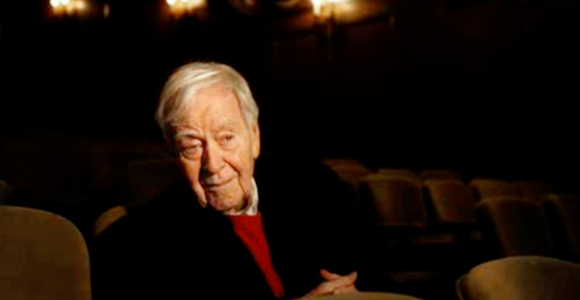
BURNED-OVER DISTRICT, NY. Horton Foote, the playwright and screenwriter from Wharton, Texas, died last week at the age of 92. Foote, whose finest works include The Trip to Bountiful and Tender Mercies, once said of Robert Duvall that his acting is never general but always particular—an artistic eulogy fitting the playwright as well. In remembrance, over the weekend we watched Tomorrow (1972), which Foote adapted for stage and screen from a William Faulkner story. A product of that most fecund of all cinematic eras, the early ‘70s, the movie stars Duvall, for my money the best film actor of his generation, in an absolutely heartbreaking performance as a Mississippi cotton farmer who takes in an abandoned pregnant woman. It is set in the South but it does not despise the South.
Horton Foote, by the way, owned and sometimes lived in the house in Wharton in which he had grown up. If you could not take Wharton out of the boy, neither could you take the boy out of Wharton.




4 comments
Russell Arben Fox
I was blessed to meet Horton Foote once. He came to Brigham Young University in 1995 as I was finishing up my time there, having finished my Masters and taking some timing off before going on to get my Ph.D. elsewhere. BYU had just finished producing a series of Foote’s plays, ending with “The Roads to Home,” a series of three, one-act vignettes of–as I remember them–astonishingly acute observational power. Foote stood at the end of the play, received a prolonged ovation, and then took questions from the students for over an hour. I couldn’t think of anything to ask him; I was so thrilled to be in presence of a living legend. I did have the presence of mind to run up to him afterward and thank him for “Tender Mercies,” probably the greatest–because the most local, the most intimate, the most homespun–story of the power (and limits) of Christian conversion that I’d ever seen. He was tired, but thanked me kindly.
Rest in peace, Mr. Foote. He knew his place, and did well by it.
Jesse Walker
Tender Mercies is one of the best American films of the ’80s, and one of Duvall’s best roles as well. Rest in peace.
Mark Shiffman
“Tomorrow” is one of my favorites, really true to the spirit of Faulkner (which is no small feat for a film). The pacing is one of the keys: slow like a summer day in Mississippi.
Mark Mitchell
Bill,
Thanks for this. “Tomorrow” is a fantastic film, and “A Trip to Bountiful” is as well. They deserve careful attention. No cardboard characters or stupid dialogue. Although, it might sound cliche, the word “authentic” comes to mind.
Comments are closed.